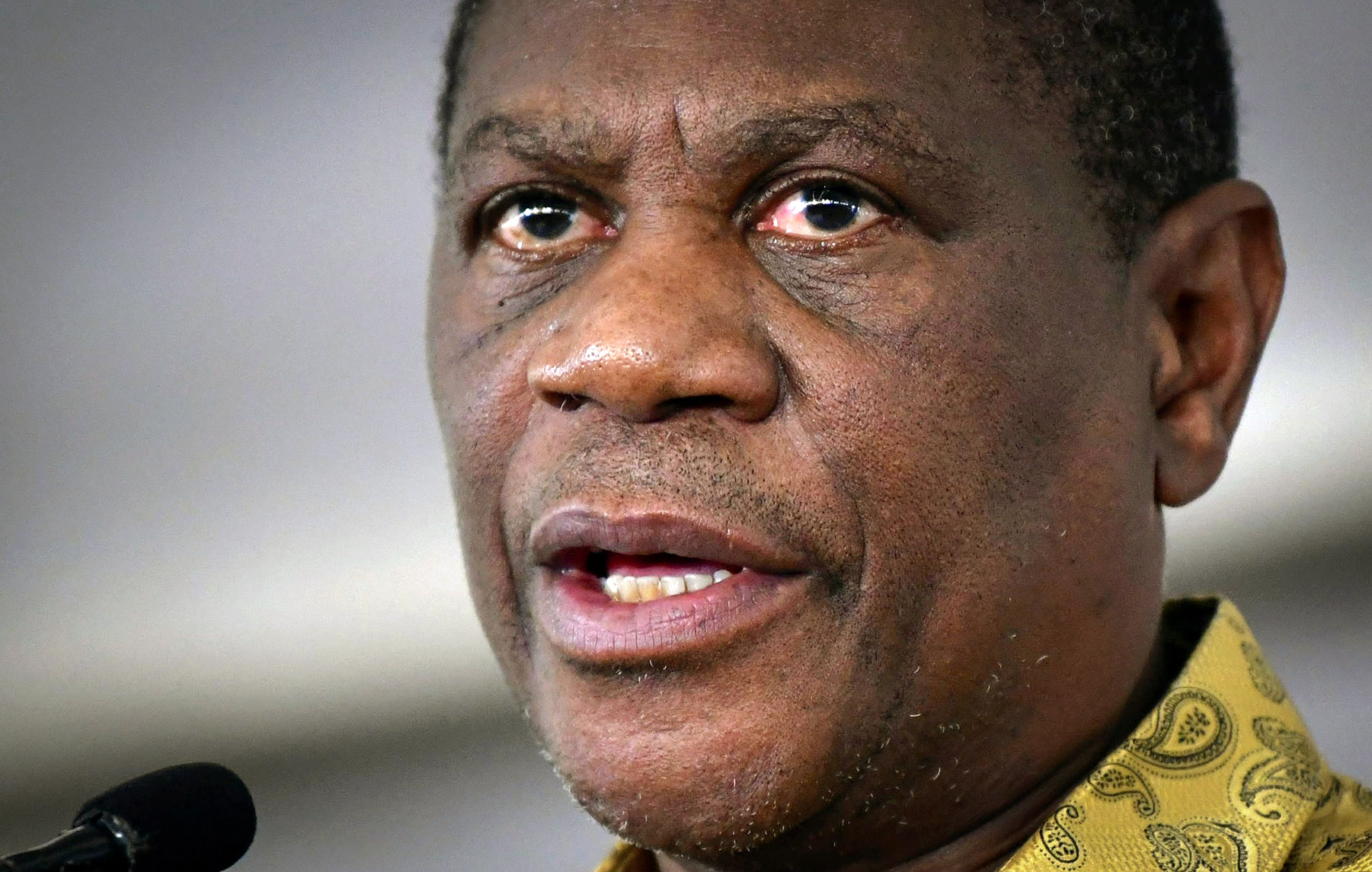Deputy President Paul Mashatile said on Thursday, 14 August 2025, that it was imperative for the government to reach an “amicable trade agreement with the White House”. Mashatile was speaking on the second day of the National Association of Automotive Component and Allied Manufacturers (Nacaam) Show held at the Boardwalk in Nelson Mandela Bay.
“I must highlight that there will be repercussions felt throughout the entire value chain if we do not reach an amicable trade agreement with the White House. It is probable that South African suppliers who provide support to domestic original equipment manufacturers (OEMs) that export automobiles or integrated systems to the US would experience volume cutbacks. This would put pressure on production planning, employment decisions and investment choices.
“South African automobiles and components would see a direct rise in the landed cost in the US market. Because of this, they would be unable to compete with goods from nations that have continued preferential or zero-duty access, such as those in the USMCA (United States, Mexico, Canada Agreement),” he said.
This week Trade, Industry and Competition Minister Parks Tau said South Africa had offered easier market access for American blueberries, poultry and pork in a revised trade offer to the US Trade Representative on Tuesday, 12 August.
Read more: Parks Tau’s ‘Plan A’ turns to new markets to outrun Trump’s trade war
There has been no indication yet that the US has decided to drop its punitive 30% tariffs. The tariffs have already hit the South African automotive industry hard.
Read More: Eastern Cape on its knees, Numsa warns government of jobs ‘catastrophe’
“Overall, the imposed tariffs threaten to disrupt well-established trade flows and weaken the global competitiveness of South Africa’s automotive manufacturing ecosystem. However, South Africa remains resilient and steadfast in its efforts to grow and protect our economy. We will continue engaging with the US to identify practical solutions,” Mashatile said.
He added that the automotive sector was essential in the government’s efforts to overcome unemployment. “[The] employment levels in the [components] sector have been under strain due to ongoing economic pressures and reduced production volumes.
“I have also learnt that over the past two years the National Association of Automotive Component and Allied Manufacturers has recorded 12 company closures, impacting over 4,000 individuals. What is of more concern are the recently released figures by Statistics South Africa showing that the country’s unemployment rate has climbed to 33.2% in the second quarter of 2025, an increase from 32.9% in the previous quarter,” Mashatile said.
Read more: Trump tariffs jeopardise future of decades-old Nelson Mandela Bay engineering firm
“We need to do more to combat unemployment, which might include improving education and skills to match labour market demands, promoting entrepreneurship and small enterprises, and investing in public employment programmes to generate jobs,” he added.
But the deputy president also brought some good news of new investments in the province’s manufacturing sector.
“The recent investments in the Eastern Cape by Shatterprufe, a part of PG Group, and Ebor Automotive Systems demonstrate that the South African market is resilient and capable of overcoming any setback,” he said.
Ebor Automotive Systems is a locally owned producer of plastic injection-moulded components and assemblies with facilities in Nelson Mandela Bay and East London.
“This extraordinary time necessitates collaboration between the government and the private sector to address the growing dependence on imports, infrastructural inadequacies, the transition to electric vehicles (EVs), and the issue of a 30% tariff increase,” Mashatile added.
Eastern Cape Premier Oscar Mabuyane called on the automotive industry to not despair.
“I have been told by my people that delegates in this Naacam Show have raised concerns over the need for Transnet and Eskom to do more in improving their efficiency, facilities and economic infrastructure to enable manufacturing, logistics and export. It is my responsibility to respond to such genuine concerns from the auto industry.
“We want to make a special appeal to delegates at this Naccam Show not to despair considering the current challenges faced by the automotive sector. We are a resilient people, and when we put our heads together we can overcome any obstacles,” he said.
Public-private partnerships
While Mashatile and the other ministers speaking at the show stressed the importance of other African countries as an export destination, Transnet’s CEO Michelle Phillips said it was exploring public-private partnerships to re-establish rail corridors and improve efficiency to and from South African ports.
During a panel discussion on the issue, logistics experts however said that transporting goods into Africa remained inefficient and took a very long time.
Michelle Tinkhof, Group Commercial and Imports Director for Sub-Saharan and Eastern Africa at the C. Steinweg Group, said exports could not rely on a single mode of transport.
She said she supported Phillips’ view that rail transport would help exports considerably as the current sole reliance on road freight was very inefficient. Tinkhof explained that it could take between 45 and 60 days for a haulier to deliver goods to the Democratic Republic of Congo, and about 10 days just to clear cargo at some African borders.
Sharon Modiba, Chief Economist at the International Trade Administration Commission, pointed out that only 59.9% of South Africa’s manufactured exports currently went into Africa — signalling room for growth in a continent eager for locally made products. She also stressed the importance of fair trade, citing anti-dumping regulations and the need to strengthen cooperation with African trade partners. DM




 Deputy President Paul Mashatile. (Photo: Gallo Images / Die Burger / Lulama Zenzile)
Deputy President Paul Mashatile. (Photo: Gallo Images / Die Burger / Lulama Zenzile)